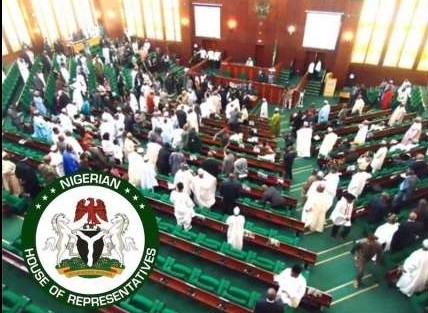
House of Representatives
NASS to prioritise security, economy, electoral reforms in 2024 – Reps Speaker
Speaker, House of Representatives, Abbas Tajudeen has disclosed that the (NASS) National Assembly will prioritise issues concerning security, economy and electoral reforms in 2024, proposing a National Legislative Security Summit.

Speaker Abbas also announced that the House would on Tuesday next week, engage the relevant Ministries, Departments and Agencies (MDAs) and the principal actors in the financial sector on the state of Nigeria’s economy.

The Speaker made this known in an address to welcome members back from Christmas and New Year break, saying the lawmakers were back to the chambers ‘with renewed vigour and commitment to serve our beloved country, Nigeria and our constituents.’
“In the area of security, the most important challenge before us is to overhaul and strengthen the security architecture to improve overall effectiveness.
“As I noted earlier, the state of the economy is also of grave concern to us, and we must contribute to promoting sustainable economic growth. Our Agenda has identified concrete measures for economic restructuring, economic diversification, and agricultural development. All Committees are directed to streamline their activities towards the realisation of our strategic objectives.
“In this regard, I am pleased to announce that House’ Sectoral Briefs with MDAs will resume immediately. Accordingly, we shall engage with MDAs and principal actors in the finance sector on Tuesday, 6th February, 2024. This engagement will assess the nation’s readiness to mobilise the necessary financial resources for implementing the budget.”
Speaker Abbas listed other legislative priorities for the year 2024 to include speedy consideration of electoral reforms, alteration of the 1999 Constitution, improved citizens’ engagement, enhanced oversight, institutional capacity strengthening, and greater collaboration with the Executive.
“Of immediate concern to us are electoral reforms to address grey areas in the 2022 Electoral Act. The purpose is to ensure that future elections are free, fair, and credible elections that truly reflect the people’s will. Recent data shows that 75% of gubernatorial elections conducted by INEC in 2023 ended up in the Supreme Court. A significantly higher percentage of gubernatorial, State, and National Assembly elections was litigated to the appellate level.
The Speaker noted that the Legislative Agenda had identified key areas of interest for the House, including streamlining the procedure for constitutional alteration by enacting a Constitutional Alteration Procedure law to provide a timeline for the passage of the Constitution alteration bills by the National Assembly and adoption by State Houses of Assembly.
“We remain committed to continuing consultation towards assigning constitutional roles for traditional institutions, local government reform and statutory measures that promote women’s representation in elective and appointive positions,” he stated.
According to Abbas, 2024 holds great significance in the democratic journey of Nigeria as a nation, as it marks 25 years of unbroken democratic governance since 1999.
However, Abbas noted that despite numerous security measures, ‘the menace continues to thrive, mocking our efforts and challenging our resolve to build a cohesive, peaceful and prosperous nation.’
“It is a stark reminder that the conventional approaches to security we have espoused for so long are no longer sufficient. The time has come to think out of the box and adopt new and contemporary strategies that better respond to the complexities of our current challenges.
“The enemy evolves, and so must we. I challenge you to rise to this occasion, to demonstrate the indomitable spirit for which you are known, and to do more in safeguarding the lives and properties of our people,” he said.
On the economic front, Speaker Abbas also lamented that Nigeria ‘continues to grapple with numerous hurdles that impede our growth trajectory.’
“Inflation, unemployment, and infrastructural deficits are issues that touch the core of our people’s daily lives. The continuous depreciation of the naira has far-reaching consequences, given that Nigeria relies heavily on imports for many essential items, including food, fuel and machinery. Yet, amidst these challenges, there are signs of resilience and potential.
“The President’s economic policies, aimed at revitalising key sectors, promoting sustainable growth, and fostering inclusive development, are steps in the right direction. We in the legislative arm must align our efforts with the Executive to ensure that these initiatives are effectively implemented and yield tangible results for every Nigerian.”



